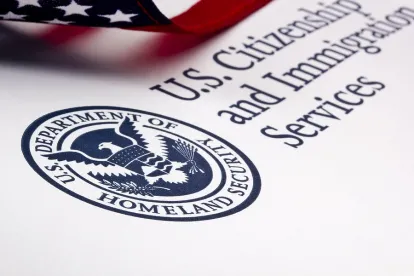Two memorandums from the Department of Homeland Security implementing President Donald Trump’s Executive Orders on “Enhancing Public Safety in the Interior of the United States” and “Implementing the President’s Border Security and Immigration Enforcement Improvements Policies” establish broad enforcement priorities for the removal of individuals from the U.S. Issued by DHS Secretary John Kelly on February 20, 2017, the memos expressly overrule Obama Administration memos and guidelines prioritizing the removal of criminal aliens.
In addition, the Kelly memos state that the Deferred Action for Childhood Arrivals (DACA) program remains in effect, and that the program for certain parents of U.S. citizens or permanent residents (DAPA), which has never been implemented, will be “addressed in future guidance.”
According to the new guidelines, DHS will prioritize removal of aliens who are convicted of any criminal offense, have been charged for an unresolved criminal offense, or have committed acts constituting a chargeable offense. Significantly, because commission of any chargeable offense is now within DHS’s enforcement priorities, otherwise undocumented individuals who provided a false Social Security number or false identity information to an employer as part of the I-9 employment eligibility verification process may expect to be targeted for removal.
To deal with the enforcement expansion, DHS intends to hire 10,000 new Immigration and Customs Enforcement officers and agents, and 5,000 additional Customs and Border Protection agents. DHS also intends to acquire additional detention space for aliens awaiting removal. Further, DHS will look to enter into agreements (under Section 287(g) of the Immigration and Naturalization Act) authorizing state or local enforcement personnel to aid in enforcing immigration laws.
Other highlights of the new enforcement priorities include:
-
Expanding use of expedited removal. Expedited removal does not allow for a hearing before an immigration judge and has been used for aliens apprehended at or near the border and individuals apprehend within 14 days and 100 miles of the border;
-
Prosecuting parents who directly or indirectly facilitate smuggling of unaccompanied minor children to the U.S.;
-
Ending “Catch and Release,” which allowed inadmissible aliens to enter the U.S. while awaiting adjudication; and
-
Requiring that most aliens be detained while awaiting adjudication of their cases.
Implementation of these priority changes may not be immediate. The hiring of an additional 10,000 ICE officers and 5,000 CBP officers will require significant budget allocations. Expanding expedited removal will require notice and comment rulemaking. Moreover, these new priorities do not account for the ongoing problem of a severely overburdened immigration court system. In 2004, there were 168,000 cases pending. Currently, there are more than 500,000 cases pending, with non-detained docket cases not heard for two-to-five years.





 />i
/>i

